An epic encounter with John Lydon: punk's most iconic troublemaker
- Text by Cian Traynor
- Photography by Mattia Zoppellaro
- Illustrations by Oliver Stafford

Interviewing John Lydon can be a testing experience. This is not an opportunity for a structured conversation; there will be no casual back-and-forth.
Instead there are only brief chances to interject, typically whenever he pauses to take a breath or sip some water.
Even if a question is landed successfully, there’s every chance it’ll be rolled right over and ignored. You just have to wait for another fleeting chance to appear and take aim once again.
At 61, Lydon is still a hurricane of ideas. There is never any hint of hesitation. Topics are torn through – bullshit called out, absurdities dismissed – with all the emphasis of a pantomime villain, his ripostes capped with a satisfied cackle.
It’s always been this way. Growing up in London’s Finsbury Park, the oldest son of Irish working-class parents, Lydon contracted meningitis at age seven after drinking contaminated water.

The condition put him in a coma that erased his memory and damaged his eyesight, leaving him with an eye-popping stare. But it also forced Lydon to reinvent himself, becoming a fierce autodidact who could neutralise bullies with his snarling wit.
After being recruited by Malcolm McLaren to front the Sex Pistols as a teenager, Lydon helped alter the course of popular music. The scathing Never Mind the Bollocks – a nihilistic antidote to everything that preceded it – became a landmark album that saw the singer branded as a threat to society.
But by 1978, the band collapsed under the weight of constant controversy and mismanagement. Bassist Sid Vicious was dead and Lydon ditched the ‘Johnny Rotten’ name, forming post-punk pioneers Public Image Ltd with bassist Jah Wobble and former Clash guitarist Keith Levene.

PiL would go on to be just as influential: warping genres together as an unclassifiable juggernaut that has produced 10 albums between 1978 and 2015.
Now Lydon is collecting 40 years’ worth of songwriting in a limited-edition book of annotated lyrics, illustrating them with his own artwork – a project that finds him in roaring form.
Are you there, John?
You’re really muffled, fella. I can’t hear a word.
I’m sick, so it could be my voice and not just the connection.
You sound like a Dalek! …Typical of the press. Ex-ter-minate! [Laughs]
What’s it like living in the US at the moment? Has the politics affected how you think about it as a home?
Fuck politics!
Well—
I’m not here to discuss the politics of America because under Trump, there isn’t any.
Well, there’s a resolve that’s mobilising people at the moment and many don’t know where to direct that energy. How do you think it can be turned into something significant?
They should listen to me more! I’ve always been a positive, forward thinker. But, really, I think what’s happened over the last few generations is that everyone’s lulled themselves into a false sense of security and the internet has done a great deal of damage to people viewing themselves as individuals.
So how do we—
The art of communication has been replaced by mobile phones and tablets, which is a great shame. I don’t want to meet people electronically; I want to meet them physically. That’s not to say all that modern technology offers is bad, but certainly a lot of it is two steps backwards.
Right, so—
Anything that separates you from combining with your fellow human beings is a serious problem. This is why the Women’s March was so damn interesting. Women think emotionally and even though, yes, they’re organising it through the internet – they seem to have conquered it. It’s about connecting as humans again.
So in the bigger picture, what’s the answer? How do we get past this?
I have no idea but I don’t think listening to the likes of Madonna is going to help us. Listen, there’s a good and a bad side to everything; we just have to weigh up the consequences. There’s an awful lot of what seems to be right-wing politics creeping into our lives now and I’m absolutely sure that’s because of indolence.
We’ve all taken our foot off the pedal; we just presume good things will happen, but that’s not how the world works. My version of positive thinking is presuming bad things will happen. That way when they do, I’m not disappointed.

But as someone who has spent their whole life not conforming to what society dictates—
Well, quite right! When you look at what successive Tory governments expect from us – or Republicans – there’s no way I could conform to that. It’s not sensible to me. And I can’t adhere to something as anachronistic as religion, which I know in my heart of hearts is another form of politics. It’s all just a way of manipulating people. And of course the gullible just love that, don’t they? Like lemmings to the cliff!
So how do we wake people up?
I don’t know! It’s all of our problem. There’s a beginning just in that sentence alone: ‘all of us’. We’re all in this together; one world. Stop thinking in small-minded terms – little countries and nationalities. That just leads to war and division. I don’t believe in borders.
But as individuals, what—
Start in small places. I love going to little town-hall meetings, they’re riotous! [Laughs] That’s where these politicians all begin. You have to let them know right from the start that their lazy attitude isn’t wanted. You get yourself thrown out a lot but— [The line cuts off.]
Hello? You went quiet there for a second…
No, I don’t think I went quiet for a second! Not possible!… Jesus, what a weird conversation to have at 10 in the morning. I’m in the middle of doing drawings for my book, so I have to switch roads here somewhat, although they’re all interconnected.
Now that you’re going back over that material, have any lines taken on new meaning all these years later?
No. The meaning is always there. I remember. It’s more of a refresher course, really. I knew the attitude I was in when I wrote them and it’s very interesting to be reminded of that. I remember things almost photographically. I have to because I had my memory stolen from me when I was young and it took an awful lot to get that back, so I tend to remember things in cartoonish ways. But they’re all pieces of the same jigsaw puzzle. I don’t know if any of us can ever work out the complete workings behind it all.

When you lost your memory, the doctors told your parents to be hard on you for your own benefit. Was that already in their nature or would it have been hard for them?
There was never any self-pity in our house, which was probably the most valuable lesson my mum and dad ever taught me. But then you had the added bonus of the doctors saying, ‘Don’t pamper him or he’ll become institutionalised and just accept that he doesn’t know nothing.’
So it was a combination of those two things – a school of hard knocks, I suppose. You’ve just got to go through it. For me, it helped. I don’t know if it would help others but the biggest blessing of all is that it made me what I am today.
I can’t stand people lying to me. There’s no need for it. When you’re seven or eight years old, and you don’t know who these people talking to you are [the medical staff], it takes an awful lot of trust to believe them. And there were other incidents, like the nuns at the Catholic school I went to, telling me that I wasn’t left-handed.
I had to remember how to read and write all over again but with a hand that just wouldn’t cooperate. All based on the nuns! They set me back years just because being left-handed was seen as a sign of the devil. How prehistoric is that?
But by the age of 10, your dad got you a job running a minicab service. How did that work?
Well, it was quite simple in that it just involved being on the phone, which I loved, and organising things. It was only the writing down that caused a problem for the minicab owners later. That, I suppose, and the tax evasion. [Laughs]
But it helped me no end to sort myself out and gave me a great sense of achievement and self-respect. I could put things together, I could set up situations without leading to horrible confusions.
That early learning to organise is what’s kept me in whatever this thing is I exist in now… would we call it a career? It requires a lot of organisation all the time; you have to think way ahead of earnings – planning things years in advance and remembering them. But that’s where I am at my best: under pressure. I can’t bear the concept of holidays with nothing to do. It’s absolutely frustrating to me.
Do you believe there has to be a bit of a struggle or conflict going on in your life to create something worthwhile?
Well, whether I like it or not, that’s just the way it is. You have to smile in the face of adversity. It seems I get my most fun when I’m told, ‘No, you can’t do that.’ [Laughs] I’ll find a way that proves I can. None of my routes through life has involved stealing or imitating or lying or doing wrong to others. I pat myself on the back for that.
You’ve stared death in the face many times and you’ve lost many people that were close to you. As you get older, does the idea of death become easier to accept?
No! Certainly not. [Laughs] No, no, sir… I don’t know what happens to people other than that they cease to exist and then I miss them forever and ever… until I indeed take my turn into the great missing.
When you pave new ground, it means taking all the punches and kicks as you open doors for other people, but in the long term—
Yeah, I’ll tell you what happens: you open the door and the ones you let out stampede over you! [Laughs] Then they have the cheek to issue punk mandates and start telling you how you should be. Nonsense! I said it in a song years ago: we could all do without judgement. It might help.
But in the long term, does the belated respect outweigh the frustration that comes with being a pioneer?
Yeah, there’s always that. Of course. But it’s ever so much more enjoyable to pick on the haters because they seem to have the emptiest voice – the loudest but the emptiest. They say that empty vessels make the most noise and unfortunately those tend to be in the media, in politics and in institutions. But quite frankly I’m doing people a great service by giving them something to hate – as well as something to love.
Do you think that the punk image has endured more than its ideals?
Well, the ideals have [endured] with me! The do-it-yourself manifesto is in fine form. I’ve got no time for all those who thought punk was about adopting a uniform and a strict set of rules. Those are the very things I was always against. The longer you live, the more you learn. The more you learn, the better person you become.
You have to alter your perspective – embrace different ways and other points of view which you can then share. Otherwise you’re just repeating yourself – and that’s never healthy. You don’t want to be lost and trapped in your own past.
Sex Pistols is a damn fine band. I don’t think we were much appreciated at the time but, quite frankly, I can’t hang around and wait for people to catch up to that. I have to go forwards with my own life and lead by example if there is going to be any leading at all.

How did you feel about seeing punk memorabilia worth five million quid set on fire [by Joe Corré, son of Vivienne Westwood and Malcolm McLaren]?
A fantastic waste of money that could have really helped some charities. An absolutely stroppy, typical middle-class spoilt-brat thing to do. Very self-important, very attention-grabbing, very judgemental and very arrogant!
Who the fuck are these people to proclaim a judgement on anything? Where were they, really, when it mattered? It’s so easy to look at history through rose-coloured glasses and paint yourself a bigger picture. That’s all that Malcolm’s son was doing: making himself seem more important than he really is. Oh, so that’s what private schooling does? Lovely.
Do you ever have moments of insecurity?
All the time. My consistent companion.
And how do you navigate that? How do you get around it?
Well, I know drugs won’t help. Really, insecurity allows me to perform in the most proper manner. I have to go through absolute total fear. It’s not only fear of letting myself down but of letting others down.
It’s important that I drive myself to the absolute bitter edge and meet my fears head on. Then I can completely be myself on stage because I’ve already been through torture backstage. Whatever happens after that is a reward.
I can’t eat before a gig; I certainly can’t indulge in alcohol or anything like that. I want to go on completely stone-cold sober and face my demons. A lot of the songs are demons to me. They hurt very, very seriously because they’re about, quite literally, the deaths of my mum and dad and other situations similar to that.
A PiL gig for me is full of joy and love and great sharing with an audience, but there are moments of intense sadness and loss. The songs remind me of that every single time I do them. And it’s important that I don’t exaggerate those memories either; they are absolutely embedded in me. They’re as thick as rocks and they can’t be altered or shifted.
Now that you’re putting together this songbook, would you have any advice for someone just starting out, trying to write their first song?
Yeah… don’t take yourself too seriously. You have to be able to laugh at yourself. Remember that things like self-doubt are not actually hindrances, they’re just the gift of preparation for what is about to come.
Do you think artists are expected to present themselves as likeable, good people with no insecurities?
No, no! Because many of them are certainly not good people and I want them to be honest about that. [Laughs] It’s the one opportunity you have to actually open the pages in your book of life and tell it truthfully.
It’s important to me when I write songs that it be exactly clear where that pain or joy is, to explain all of the emotions that go through me: the good, bad, ugly, indifferent. I have to be honest about it. And when you’ve done that, then you can move on.
I started very lucky, didn’t I? I walked into a band that had no ambition or idea where they were going and I was full of ideas. So I attacked every institution available to me. And that helped me no end. In fact, everything in my life I’ve looked at as an experience to my benefit. But did that not feel dangerous, the attacking of those institutions?
There’s so much fear and despair in the world at the moment, the idea of doing that now would seem intimidating to a lot of people…
Well it did then, even more so… I never considered that I would be discussed in Parliament under the Treason Act, that I could face the death penalty just for being a saucy little youth, declaring my opinion on things. But there we have it. What fun!
You have to present the situation in order to make life better for everybody. Somebody has to stand up and go, ‘No! Enough of this.’ I’m one of those kids. I mean I’m shy as all hell. God, I’m no good at a party – I can’t bear it! I don’t like people looking at me, it makes me very self-conscious. But once I’m on a stage or I’m writing a song, I jump into a different frame of mind.
Again, you’ve got to tell it like it is. That’s just out of respect for my mum and dad, and their memory. I don’t want them to… if they are still there somehow viewing me – and they are still inside my head, by the way – I don’t want them to be disappointed. That’s the fuel to my engine, really.
Were there ever times when it did feel like they were disappointed?
No. They always knew I was true to my word. Even though they didn’t quite understand that word at times, they knew I meant it and they knew there was good cause and justification for my points of view.
So you have no regrets?
Course I do! Everybody who came within my sphere and died – that’s a disappointment. I don’t like people to cease to exist; I don’t like the concept. It breaks me down. Very, very seriously. I sadly miss them, enemies included.
And if that be my operation – religion free – then I think that’s the best way to go about it. ‘Hark the herald angels sing’ is not a concept I can believe in. It’s a foolishness and therefore I think the only people who truly really do respect life and want themselves and others to live as long as possible are atheists.
It’s a word I don’t like the sound of – it’s an ugly sounding word – but there it is. I don’t like the word ‘artist’ either. In fact I hate the word artist more than atheist. [Laughs] It’s a hard life I’m giving myself here. [Laughs] But for want of a better term – I don’t even know what it is I do – I think I’m more of a realist than an artist.
Well, I better let you get back to the book. Thanks for your time, John.
You too. Listen! Your cold cleared up…
I think that might be just from trying to keep up with you…
[Laughs] I recommend rum. Have more than a few glasses. I’ll tell you why: it gives you the worst headache in the world. Once you’re suffering that, you’ll forget about every other ailment you have. It’s a valuable lesson in life: replace one drama with another.
Mr. Rotten’s Songbook is out 31 March via Concert Live.
This article appears in Huck 59 – The Game Changer Issue. Buy it in the Huck Shop now or subscribe today to make sure you never miss another issue.
Enjoyed this article? Like Huck on Facebook or follow us on Twitter.
Latest on Huck

Three decades behind the scenes of the music industry
Eddie Otchere’s ‘Spirit Behind the Lens’ is a story of music and culture that crosses and transcends borders.
Written by: Isaac Muk
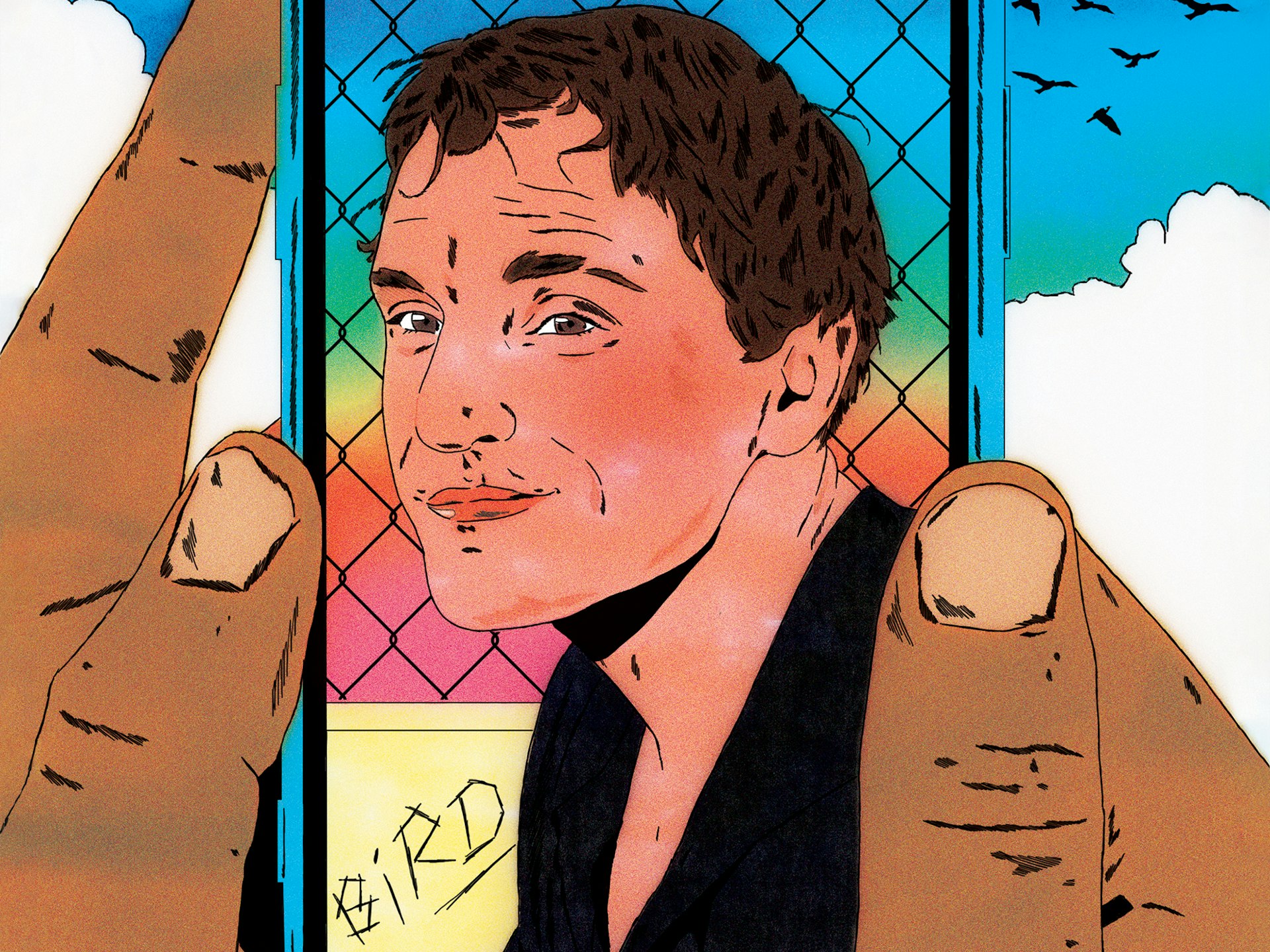
Barry Keoghan, Franz Rogowski and Andrea Arnold on ‘Bird’
The new issue of Little White Lies brings Andrea Arnold’s sixth feature to life with a thematic voyage down the Thames estuary.
Written by: Maisy Hunter
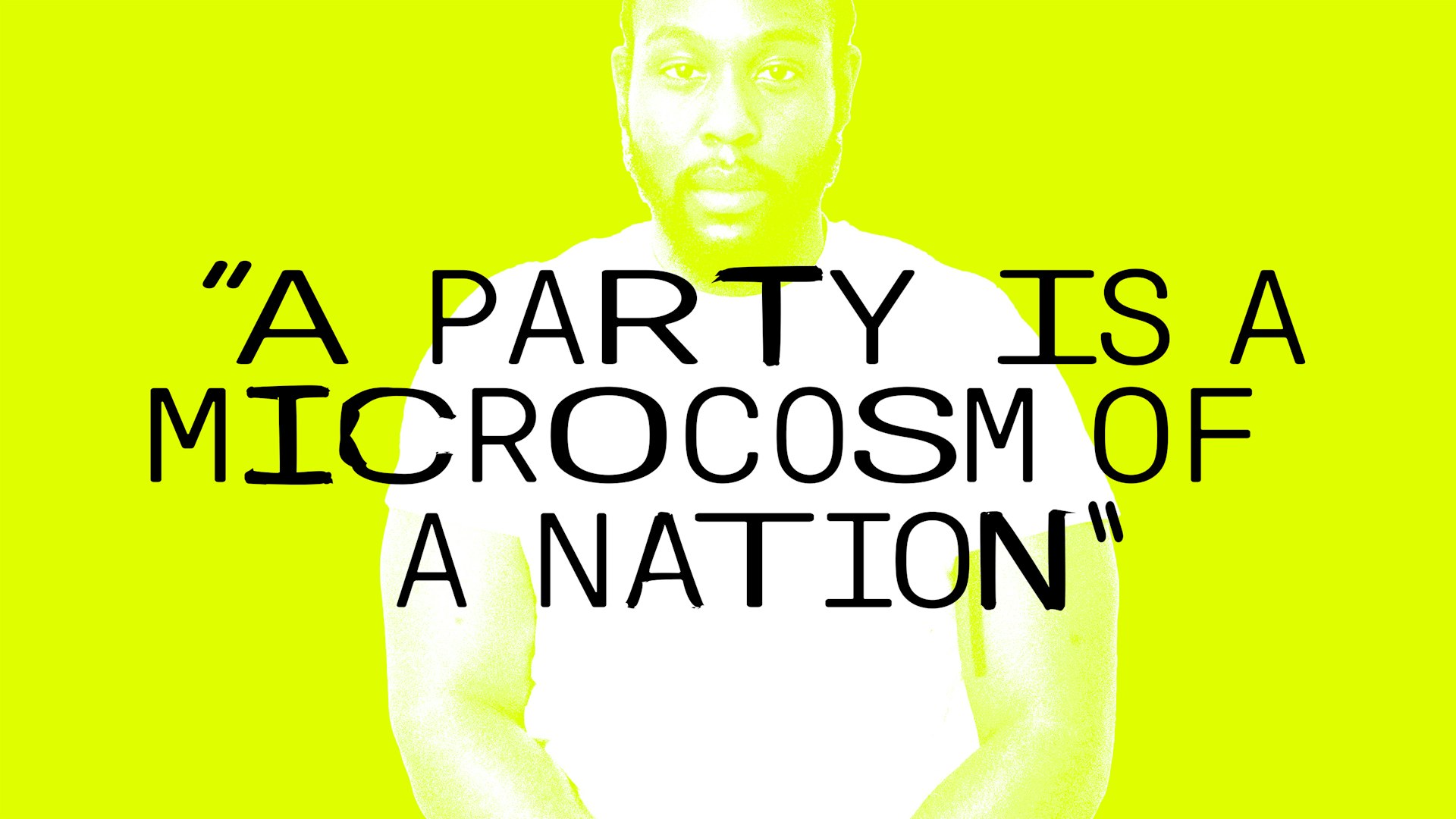
“A party is a microcosm of a nation”: Caleb Femi on the decline of the house party
To celebrate the publication of his new collection ‘The Wickedest’, Isaac Muk caught up with Femi to talk more about the work, the future of the shoobs, and discuss why having it large on a Saturday night should be cherished.
Written by: Isaac Muk
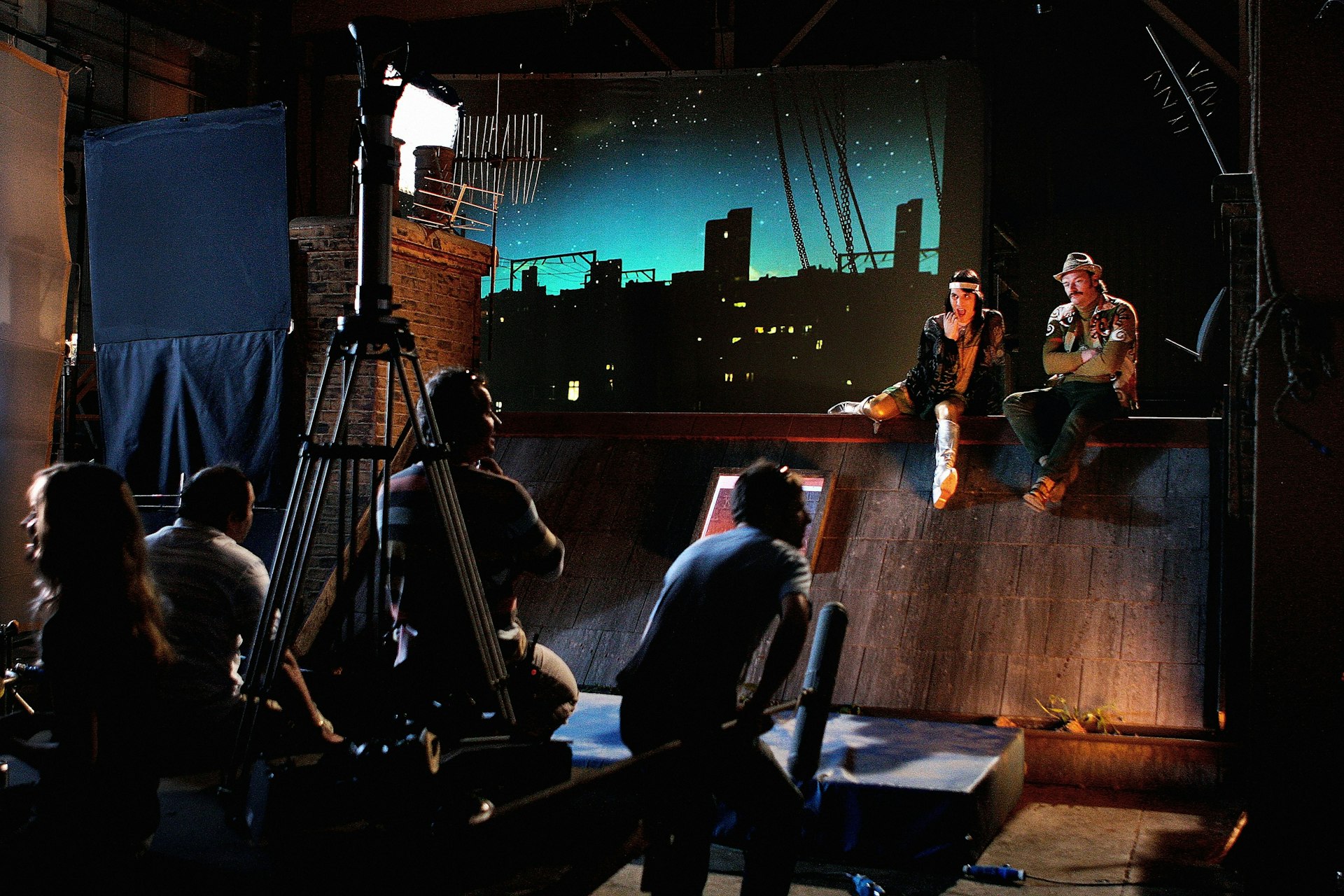
Celebrating 20 years of The Mighty Boosh
A new exhibition takes a look behind the scenes of the iconic show two decades after its BBC3 premiere.
Written by: Isaac Muk
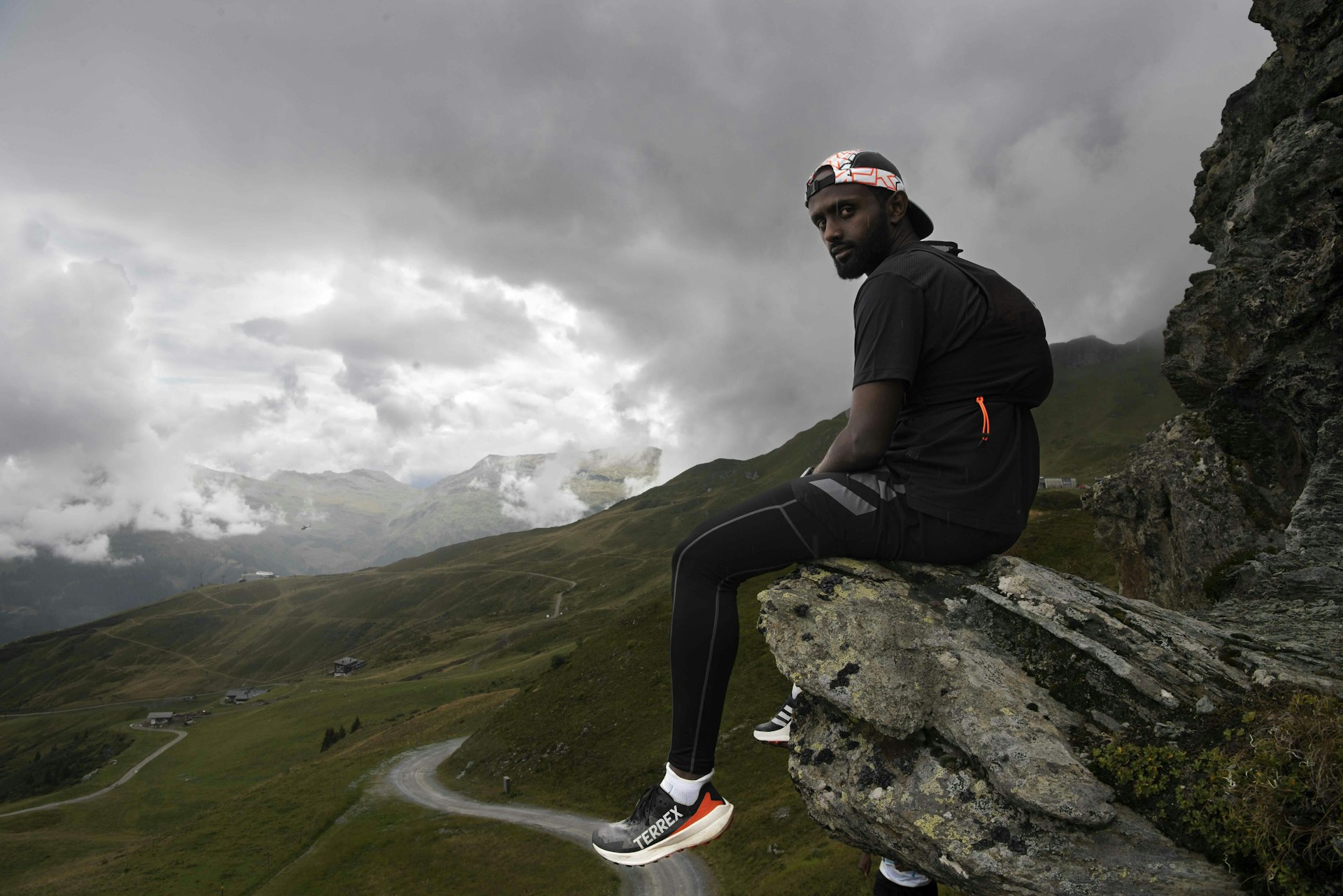
We Run Mountains: Black Trail Runners tackle Infinite Trails
Soaking up the altitude and adrenaline at Europe’s flagship trail running event, high in the Austrian Alps, with three rising British runners of colour.
Written by: Phil Young
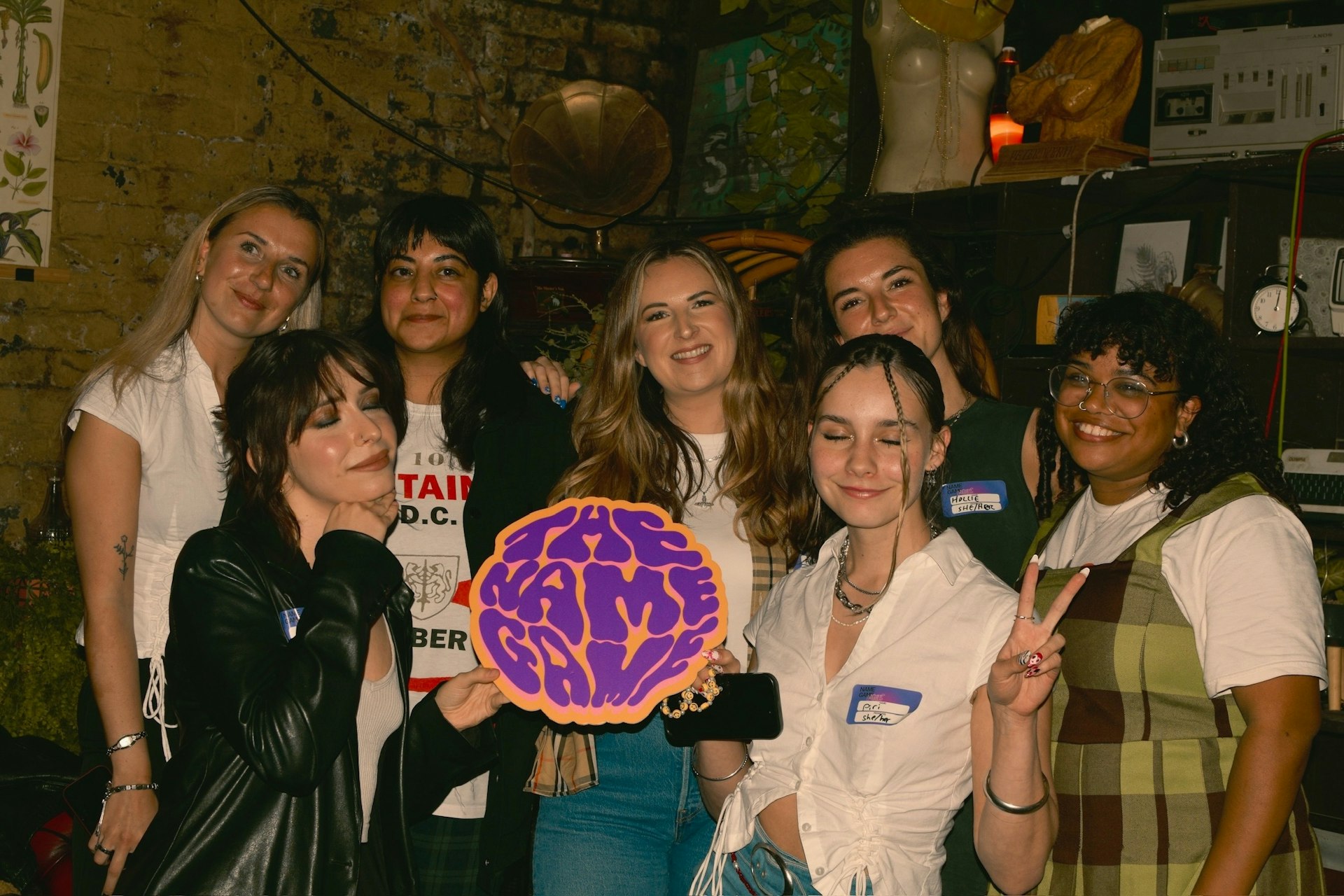
The organisation levelling the playing field in the music industry
Founded in 2022, The Name Game is committed to helping female, non-binary and trans people navigate the industry.
Written by: Djené Kaba